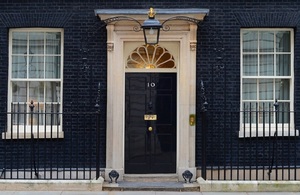Carbon Tax on Gas
Under plans being drawn up by Boris Johnson and Rishi Sunak, the prime minister and the chancellor have ordered every Government department to produce a "price for carbon emissions" across all areas of the economy as part of a drive to achieve the Net Zero carbon target by 2050.

The proposals are at the centre of the carbon reduction blueprint that is expected to be announced in the run-up to COP26, the United Nations' climate change conference being hosted by Britain in Glasgow in November 2021.
Currently only heavy industry, power generation and airlines are charged for the carbon emissions they release. Ministers want to expand this to cover other carbon-intensive goods and services including the use of gas for heating.
The proposals should lead to a switch from the huge "environmental and social" charges on electricity, which add 23% to the price on electricity bills, to a carbon tax on gas, which currently only suffers a 2% uplift.
The main obstacle to heat decarbonisation
These "environmental levies" have been the main obstacle to the decarbonisation of heat in the UK and the reason that the uptake of heat pumps has been so slow in this country.
Sales of heat pumps in Sweden are 35 times higher than in the UK per head of population.
Many experts have welcomed the new proposals, but warn that ministers may need to ensure that vulnerable families are supported. Others have pointed out that the increased taxes on gas would be balanced by the reduced price for electricity bills. Many of those most vulnerable to heat poverty currently rely on direct electric heating and their position would be alleviated by a reduction on the current excessive tax on electricity.
Almost everyone agrees that radical changes will have to be made if the UK is to meet its target to achieve Net Zero by 2050. A carbon tax on the burning of fossil fuels should be the first logical step in addressing the climate change issue.
It will also be helpful in improving the health of the nation, as reduced burning of fossil fuels will also improve air quality and contribute to a healthier environment.
The "environmental levy" on UK electricity inhibits the decarbonisation of heat policy
One key reason to install a ground source heat pumps is that one kilowatt of electricity can be used to transfer 4 kilowatts of heat into your building. This high coefficient of performance of 4 is sadly neutralised by the taxes and levies on electricity that artificially raise the price of electricity to be 4 times the price of gas in the UK.
It is the high price of electricity in the UK that is preventing the decarbonisation of heat that is so urgently needed.
If you believe this is wrong then please vote for the Petition to reduce taxes on electricity.
See Renewable Heating See Renewable Cooling

